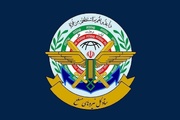Saudi's energy ministry said the country's output would drop to 9 million barrels per day (bpd) in July from around 10 million bpd in May, the biggest reduction in years.
"This is a Saudi lollipop," Saudi Energy Minister Prince Abdulaziz told a news conference, Reuters reported. "We wanted to ice the cake. We always want to add suspense. We don't want people to try to predict what we do... This market needs stabilization".
OPEC+, which groups the Organization of the Petroleum Exporting Countries and allies led by Russia, pumps around 40% of the world's crude, meaning its policy decisions can have a major impact on oil prices.
A surprise decision to cut supply in April briefly sent international benchmark Brent crude around $9 higher, but prices have since retreated under pressure from concerns about the weakness of the global economy and its impact on demand.
On Friday, Brent ended trade for the week at $76.
Saudi Arabia is the only member of OPEC+ with sufficient spare capacity and storage to be able to easily reduce and increase output.
OPEC+ has decided to adjust the level of overall crude oil production to 40.46 mb/d starting Jan. 1, 2024, until Dec. 31, 2024.
It was announced by the global organization in a statement following the 35th OPEC and non-OPEC Ministerial Meeting in Vienna.
According to the statement, OPEC and non-OPEC participating countries in the Declaration of Cooperation, the participating countries decided to “adjust the level of overall crude oil production for OPEC and non-OPEC Participating Countries in the DoC to 40.46 mb/d, starting 1 January 2024 until 31 December 2024.”
As per the statement, the Joint Ministerial Monitoring Committee (JMMC) has been granted the authority to hold additional meetings or to request an OPEC and non-OPEC Ministerial Meeting at any time to address market developments, whenever deemed necessary.
It has been decided to hold the 36th OPEC and non-OPEC Ministerial Meeting on Nov. 26, 2023, in Vienna.
MNA/PR

























Your Comment